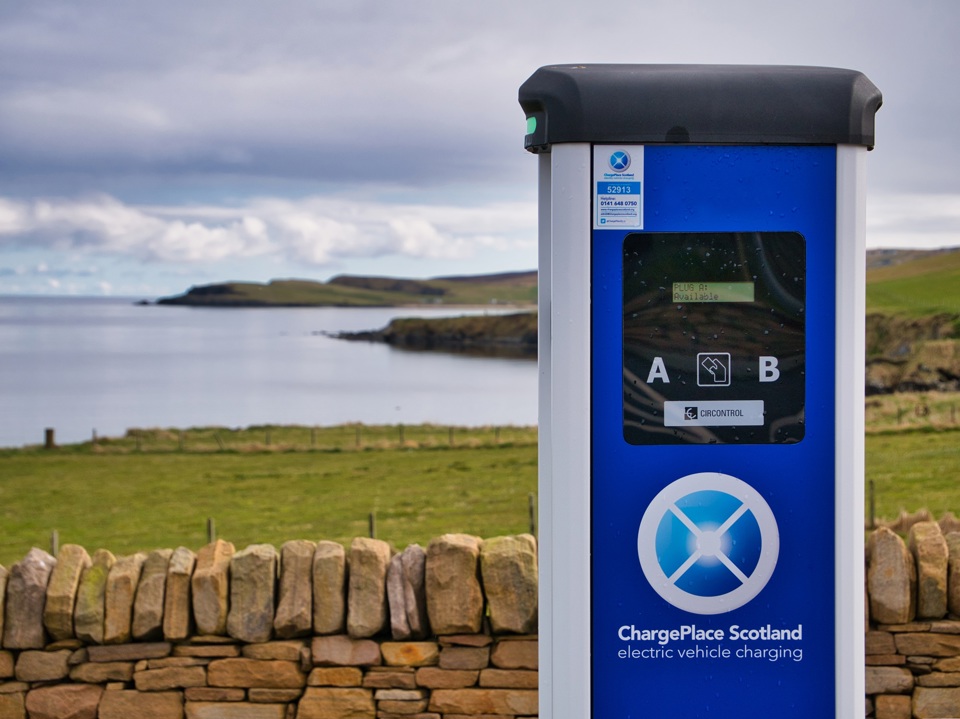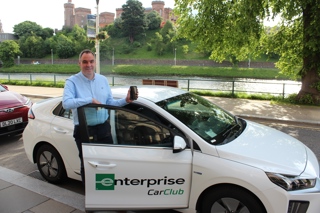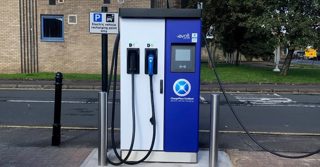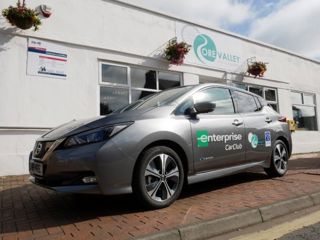Ending free or very low-cost pricing for charging electric vehicles (EVs) will attract the investment needed in Scotland’s public charging network over the next decade, a new report suggests.
EV charge points on the ChargePlace Scotland (CPS) network were made free for users following Scottish Government grants made to local authorities and public bodies in the early 2010s.
Since then, Scotland’s overall public charge point network has grown to more than 3,000, with in excess of 2,400 of these now on the CPS network.
However, to ensure the long-term growth, sustainability and reliability of the public EV charge point network in Scotland, crucial private sector investment is needed to grow it at scale and pace according to a new report from the Scottish Futures Trust (SFT).
The SFT report, Public EV Charging in Scotland: Insight Report on Tariffs, concludes that subsidised, or in some cases free charging applied by owners of charge points on the ChargePlace Scotland (CPS) network is deterring the crucial private sector investment needed to grow Scotland’s EV network over the next 5-10 years.
In the report, the public sector infrastructure body recommends that local authority charge point owners adopt a pricing regime that covers all costs and one which is broadly aligned with the market rate.
It also suggests setting out a timetable for the transition to market rate pricing and communicate with EV drivers the benefits of enabling an expanded, accessible and reliable network.
Furthermore, it wants local authority charge point owners to explore the introduction of flexible and off-peak pricing structures to and put processes in place to allow price regimes to respond to changing energy costs in a timely manner.
With the highest number of public charging points of any UK nation or region outside London (per head of population), Scotland’s network currently supports a membership of 63,000 drivers, which is growing by around 500 every week.
Minister for Transport Jenny Gilruth said: "I welcome this report from the Scottish Futures Trust which will help inform our finalised vision for Scotland’s public EV charging network.
“We made it clear in our draft vision statement that a shift towards a public charging network largely financed and operated by the commercial sector is necessary to grow the network at pace and improve the customer experience overall.”
She added: "It’s vital that the public charging network has tariffs which are fair, sustainable and are set at a rate which enables the private sector to invest right across the country in the long term.”
Andrew Bruce who leads the EV work at the Scottish Futures Trust, says that free or low-cost EV charging on the public network was a “fantastic initiative” put in place to encourage more people to use electric cars.
However, he said: “As more and more people invest in electric vehicles, we now need to take a longer-term view on EV charging to ensure we have well maintained infrastructure and deliver a comprehensive network of charge points that are ready to cope with mass adoption.
"We know that competing against reduced tariffs is causing private sector charge point owners to hesitate to invest in Scotland’s network, which will limit its growth.
"Continuing to offer access to the network for free, or at such low rates, is also having unintended consequences.
“Data shows it could be encouraging people who could charge their vehicles at home to travel to access the public network, potentially preventing those who rely on the network most from accessing it."
The Electric Vehicle Association Scotland welcomed the report’s findings on tariffs.
“The need for tariffs applied over the ChargePlace Scotland network is something key to promote private investment in the development of this critical infrastructure,” said Neil Swanson, director at the Electric Vehicle Association.






















Login to comment
Comments
No comments have been made yet.